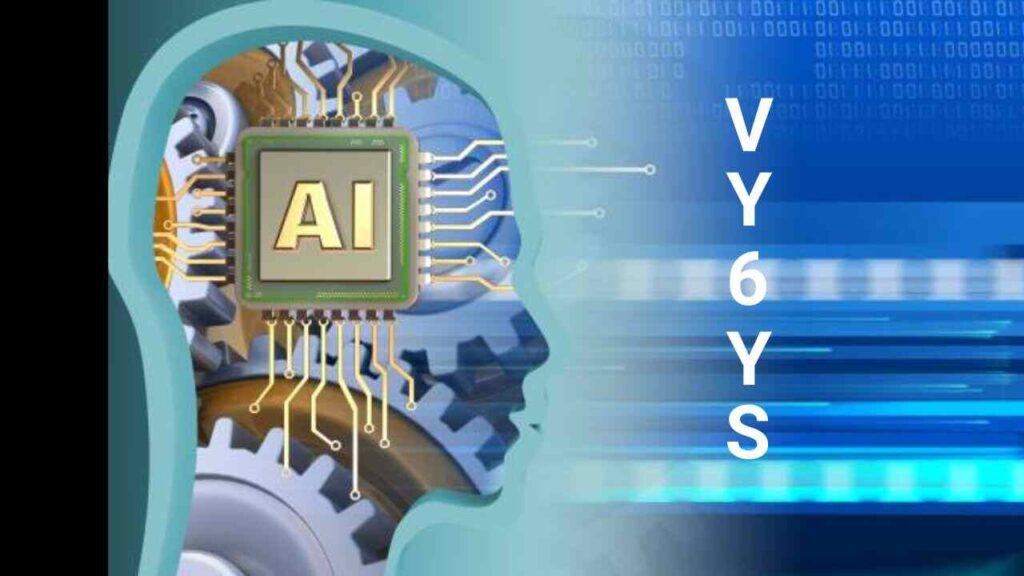The integration of Artificial Intelligence (AI) into education is not just a fleeting trend; it’s transforming classrooms and learning methods across the globe. From personalized learning paths to administrative automation. The Advantages of AI in Education Technology is creating smarter, more efficient systems that benefit both students and educators. But how exactly is this tech revolution reshaping education, and what are its key benefits?

Let’s dive into the Advantages of AI in Education Technology, unpacking why it’s crucial for modern education systems and how it’s setting the stage for the future.
What Is AI In Education Technology?
Before jumping into the advantages, it’s essential to understand what the Advantages of AI in Education Technology actually means. Artificial intelligence refers to machines designed to mimic human intelligence. It’s present in our lives in the form of Siri, Alexa, Google Maps, and even in online chatbots we interact with every day. But how does this apply to education?
In the classroom, the Advantages of AI in Education Technology takes on several forms, from AI-powered learning platforms that adapt to students’ learning styles to automated grading systems that save teachers time. The common thread is that AI is designed to make education more personalized, efficient, and accessible.
Personalized Learning For Every Student
One of the most significant the Advantages of AI in Education Technology is its ability to create personalized learning experiences for each student. Every student learns differently—some excel in math, while others may find it challenging. AI-powered systems can analyze students’ strengths and weaknesses, adapting lessons in real time to fit their individual needs.
Imagine a student struggling with algebra. With the Advantages of AI in Education Technology, the system can instantly identify areas of difficulty and provide additional resources or even a slower pace to help the student grasp the concept better. As a result, the learning process becomes more intuitive, encouraging students to progress at their own pace. This tailored approach is impossible in traditional classrooms where teachers need to manage multiple students simultaneously.
Enhanced Administrative Efficiency
Teachers and administrators often face a mountain of administrative tasks, from grading to planning lessons and managing student data. The Advantages of AI in Education Technology helps automate these repetitive tasks, freeing up valuable time for teachers to focus on what really matters—teaching. Tools like AI-powered grading systems can quickly assess multiple-choice tests or even analyze essays for grammar and content quality.
Beyond grading, the Advantages of AI in Education Technology can also assist in curriculum planning, recommending resources based on current educational trends or even suggesting adjustments based on student performance data. For example, an AI system can track classroom performance and suggest a shift in focus toward areas where students consistently perform poorly. This streamlining ensures that education systems are both time-efficient and data-driven.
Immediate Feedback For Better Learning
The Advantages of AI in Education Technology offers immediate feedback, which is crucial for student improvement. In a traditional classroom, it might take days or even weeks for teachers to return assignments with feedback. AI-powered platforms can give students instant evaluations on quizzes or homework, allowing them to understand their mistakes in real-time and make adjustments accordingly.
For instance, an AI-based language learning app can provide real-time corrections on pronunciation, grammar, and vocabulary as students practice. This immediate feedback loop helps students learn faster and reduces the chances of repeating mistakes. It’s not just about getting answers right or wrong; it’s about understanding why.
AI-Powered Chatbots And Virtual Assistants
Ever needed help at midnight before a big exam? Enter AI-powered chatbots and virtual tutors. These tools are available 24/7, offering students real-time help outside of classroom hours. Whether it’s answering questions, explaining complex topics, or even walking a student through a homework problem, AI assistants provide continuous support.
For example, a college student might ask, “How do I calculate the area of a triangle?” Instead of waiting for the teacher’s office hours, the AI chatbot can provide a step-by-step solution instantly, ensuring the student stays on track. This constant availability boosts confidence and promotes independent learning, giving students the tools to solve problems on their own.
Adaptive Assessments For Better Insights
One-size-fits-all assessments are quickly becoming a thing of the past, thanks to the Advantages of AI in Education Technology. AI-powered assessment tools can adapt tests to the student’s current level of knowledge. Instead of static exams, these assessments evolve based on the student’s responses, offering easier or harder questions depending on their performance.
This adaptability gives educators a clearer understanding of a student’s actual abilities, making it easier to pinpoint areas where they need additional help. It also reduces test anxiety for students, as they can move through assessments that feel more like interactive learning experiences rather than high-stakes exams.
AI And Predictive Analytics In Education
One of the lesser-known the Advantages of AI in Education Technology is its ability to predict future academic outcomes. Using predictive analytics, AI can analyze student behavior, performance data, and even attendance records to identify students at risk of underperforming or dropping out. With this insight, educators can intervene early and offer targeted support to help struggling students get back on track.
For example, if a student’s test scores have been dropping over the last few months, AI algorithms can flag this trend and notify teachers. This proactive approach allows educators to take corrective actions, like offering tutoring or adjusting lesson plans to suit the student’s needs better.
Improved Accessibility For All Students
The Advantages of AI in Education Technology isn’t just about making things more efficient; it’s also about making education more inclusive. AI tools can support students with disabilities by providing features like speech-to-text, text-to-speech, and adaptive learning systems that cater to various learning styles.
For example, a student with a hearing impairment might use AI-generated live captions during lectures or video lessons, ensuring they don’t miss out on critical information. Similarly, students with dyslexia could benefit from AI-based reading tools that help them process text more effectively. These technologies are leveling the playing field and ensuring that every student has an equal opportunity to succeed.
AI And Data-Driven Decision Making
Data is the backbone of the Advantages of AI in Education Technology. Schools and educational institutions can now use AI-driven data analysis to make more informed decisions about curriculum design, student placement, and resource allocation. For instance, a school district might analyze data from multiple schools to determine which teaching methods are most effective in improving test scores or student engagement.
The data collected by AI systems can also help tailor interventions for specific groups of students. Whether it’s identifying trends among high-achievers or detecting areas where students consistently struggle, these insights enable educators to craft more effective teaching strategies.
Task Automation To Ease Workload
A key advantage of the Advantages of AI in Education Technology is the ability to automate routine tasks. From managing attendance to creating lesson plans and tracking student progress, AI-powered tools reduce the workload on teachers and administrative staff. This not only saves time but also minimizes human error in record-keeping or grading.
For instance, a high school might use an AI-based system to automatically notify students and parents when homework is due or when grades have been posted. These small automations contribute to a smoother, more organized educational experience for both teachers and students.
The Future Of AI In Education Technology
While the Advantages of AI in Education Technology has already made significant strides, the future holds even greater possibilities. As the Advantages of AI in Education Technology continues to evolve, we can expect more advanced virtual tutors, even smarter adaptive learning systems, and more personalized educational experiences for students across the world. Educators will have more powerful tools at their disposal, allowing them to focus on student growth rather than administrative burdens.
However, with these advancements come challenges. Issues like data privacy, algorithmic bias, and ensuring that human interaction remains a core part of the educational process are all critical considerations as the Advantages of AI in Education Technology continues to expand in the classroom.
Important Considerations When Implementing AI
As we consider adopting AI in our classrooms, there are important points to keep in mind:
- Data Privacy and Security: Protecting student information is critical. Educational institutions must ensure they comply with regulations like FERPA or GDPR.
- Bias in AI Algorithms: Since AI systems learn from data, they can inherit biases that skew results. Regular auditing is necessary to ensure fairness.
- Balancing Human Interaction: While AI can automate many processes, human teachers are still essential for mentorship and emotional support. AI should supplement, not replace, the role of educators.
Conclusion: The Advantages Of AI In Education Technology
The transformative potential of the Advantages of AI in Education Technology is undeniable. By creating personalized learning experiences, automating administrative tasks, and providing real-time feedback, AI is setting the foundation for a more efficient, inclusive, and engaging education system. As schools and universities continue to integrate these technologies, students will benefit from a learning environment that’s more tailored to their needs, leading to better academic outcomes. However, adopting the Advantages of AI in Education Technology requires thoughtful implementation, ensuring that the benefits are maximized while addressing concerns like data privacy and the balance between automation and human interaction. With the right approach, AI will continue to revolutionize education for generations to come.
Shaping The Future Of Technology And Design comes in with Vy6ys today and explore how they are shaping the future of technology and design.



